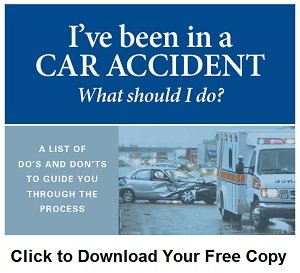
Lawsuits Against Trucking Companies
Can the Trucking Company be Held Liable for Truck Driver Accidents?
According to data from the Insurance Institute for Highway Safety (IIHS), the highest number of deaths in large truck crashes are passenger vehicle occupants. More alarming facts include:
- In 2012 alone, 3,514 people died in large truck crashes, of which:
- 17% of these deaths were truck occupants
- 67% were occupants of cars and other passenger vehicles
- 15% were pedestrians, bicyclists or motorcyclists
- Large truck crashes resulting in death was 12% higher in 2012 than in 2009, when it was lower than at any year since the collection of fatal crash data began in 1975.
- The number of truck occupants who died was 32% higher than in 2009.
- Since 1979, when deaths in large truck crashes were at an all time high, there has been a greater percentage decline among occupants of large trucks (57%) than among occupants of passenger vehicles (44%).
(source: Insurance Institute for Highway Safety)

We’ve prepared a valuable list of things to do (and not do) in the case of an automobile accident.
Download a copy for easy reference.
NY Attorneys That Understand Accident Victim’s Rights and Get Results
While truck driver errors were a contributing factor in many commercial trucking accidents, one often overlooked cause of semi and tractor-trailer accidents is trucking company negligence. Examples of trucking company errors include:
- Negligent hiring and training of truckers: Trucking companies have a duty to hire truckers who are safe and responsible. Trucking companies may be liable for the negligent hiring and retention of dangerous drivers, including truckers that lack experience, training, or a safe driving record.
- Failure to prevent driver fatigue: Federal trucking laws require commercial truck drivers to take adequate rest breaks to prevent fatigue. Trucking companies have dispatchers who should take note of how many miles a trucker is driving and take appropriate precautions to prevent driver fatigue.
- Negligent maintenance: Tires, lights, and brakes must be routinely checked and replaced when necessary.

Have Questions?
We Have Answers!
-
If I hire an attorney but do not want to go to trial, can I settle?In the course of preparing a case for trial, your personal injury attorney will work with the defense attorneys and insurance companies in an effort to secure a fair settlement for you and your family. The final decision to accept an offer of settlement or go to trial is yours alone to make.
Contact us now to discuss your case with one of our experienced attorneys. -
If arrested, what steps can I take on my behalf?
1. Do not discuss your situation with anyone except your attorney.
2. Unless your attorney says otherwise, do not discuss your case with law enforcement.
3. Request to have your attorney present if you are to be put in a lineup or subjected to testing.
4. Remain calm and courteous. Allow your attorney to speak for you to ensure that your rights are protected and you are given all the benefits afforded to you under the law.
Contact us now to discuss your case with one of our experienced attorneys. -
What is the difference between criminal procedure and civil procedure?When a crime has been committed, action is taken by a government agency against the person, persons, organization or other entity that violated the law. The first purpose of a criminal prosecution is punishment, which frequently consists of a fine or jail time. In a civil matter, the dispute is between two or more individuals or entities. The first purpose of a civil prosecution is obtaining compensation for the wronged person or entity. Settlement in a civil matter is generally an award of a money judgment. A criminal sentence is not imposed in a civil matter.
Contact us now to discuss your case with one of our experienced attorneys.

-
New York Law Firm of Distinction and ExcellenceOur Attorneys Are on Call 24 Hours a Day, 7 Days a Week, 365 Days a Year.Reach Out Today
-
Top-Rated New York AttorneysProudly Serving Clients in the Greater Capital Region, Upstate New York, and Beyond for over 125 Years.Meet Our Attorneys
-
Stay Up-To-Date On The Latest News and InformationOur Team Is Here To Help You Stay In The Loop with Recent News and Information.Read Our Blog